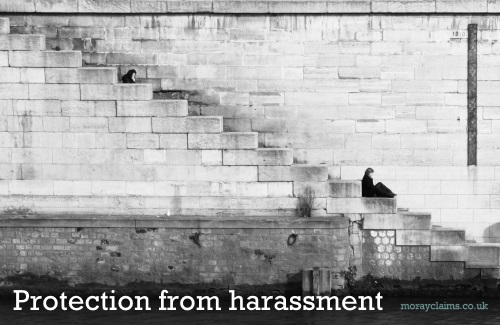During a 2009 dispute which arose between an English solicitor and the firm which formerly employed him, through the content of a series of letters and court documents, the firm attacked the solicitor in several ways.
The allegations included:
“serious conflict and conduct issues on your part …”
“you have intentionally taken instructions in this matter … because of your personal vendetta with the firm … “
“you have been poaching and inciting clients of the firm belonging to a particular community to initiate malicious complaints before third parties.”
So, the issues raised included his professionalism, motives and honesty.
Separately, they even questioned his marital status, accusing him of bigamy.
Everyone makes mistakes but …
As a solicitor, it is unpleasant when another solicitor criticises you for some reason.
We all make mistakes from time to time.
In a different league, however, is criticism which questions your integrity or character.
Having said that, if you are not in the legal profession yourself, it’s likely that negative comments about a solicitor – especially by another solicitor – will generate amusement more quickly than sympathy.
We’ll come back to Mr Iqbal and his dispute with Dean Manson, Solicitors, which involved a claim by him under the English provisions of the following legislation.
Protection from harassment
The Protection from Harassment Act 1997 created the possibility of a claim for compensation where you have been subject to a course of conduct amounting to harassment.
For Scotland, the key provision states that a person must not pursue a course of conduct which amounts to harassment.
In deciding whether conduct amounts to harassment, it will be easier to prove if the perpetrator intended to harass but it’s not essential. If a reasonable person would look at the conduct and decide it amounted to harassment, that is enough.
“Conduct” includes speech, not just actions.
“Harassment” includes causing a person alarm or distress. More widely, it could be taken to include any undesired physical, verbal or non-verbal conduct which has the purpose or effect of violating a person’s dignity or creating an intimidating, degrading or offensive environment for that person.
“Course of conduct”
Because a “course of conduct” is necessary, a single incident will not generally be enough. On the other hand, once there is specific conduct on at least two occasions, it is not crucial that each incident amounted to harassment in isolation.
How can that be?
In Mr Iqbal’s case, the court explained this broad approach to “course of conduct”, as follows:
“Take the typical case of stalking, or of malicious phone calls. When a defendant, D, walks past a claimant C’s door, or calls C’s telephone but puts the phone down without speaking, the single act by itself is neutral, or may be. But if that act is repeated on a number of occasions, the course of conduct may well amount to harassment. That conclusion can only be arrived at by looking at the individual acts complained of as a whole. The course of conduct cannot be reduced to or deconstructed into the individual acts, taken solely one by one.”
Innocuous exchanges can therefore, with the benefit of hindsight, be regarded as the start of harassment.
Widening scope for claims
When the 1997 Act came into force, in June of that year, the main motivation behind the legislation was the problem of stalking.
However, the legislation was drafted in such a way that it could tackle any form of persistent conduct which causes another person alarm or upset.
As the law has developed via court decisions in the intervening years, the scope of the Act has widened.
It’s easy to think that the Act would only apply to conduct between private individuals. In fact, it is now clear that it can apply between commercial bodies and private individuals – for example, Mr Iqbal’s case.
Comparison with claims for stress at work
Looking specifically at the workplace, we have discussed in another article the difficulties there are in making compensation claims for Stress at Work.
By comparison, claiming compensation for harassment or bullying at work under the 1997 Act is more straightforward.
The Courts have established that an employer can be vicariously liable for a course of conduct amounting to harassment by an employee.
Things are easier compared to stress at work because for harassment claims –
- You do not have to prove that the course of conduct was or ought to have been reasonably foreseeable to the employer. You don’t have to prove negligence.
- You don’t have to prove a recognised psychiatric disorder arising from harassment in the way that you have to do if it’s a stress at work claim. You are entitled to compensation if you can prove you suffered alarm and distress.
How we can help
If you have any questions about the content of this article or any aspect of our personal injury claims service, feel free to get in touch with us.
All initial enquiries are free of charge and without obligation.
You can contact us on 01343 544077 or send us a Free Online Enquiry.
Original image by Elisabetta Foco via Unsplash.
